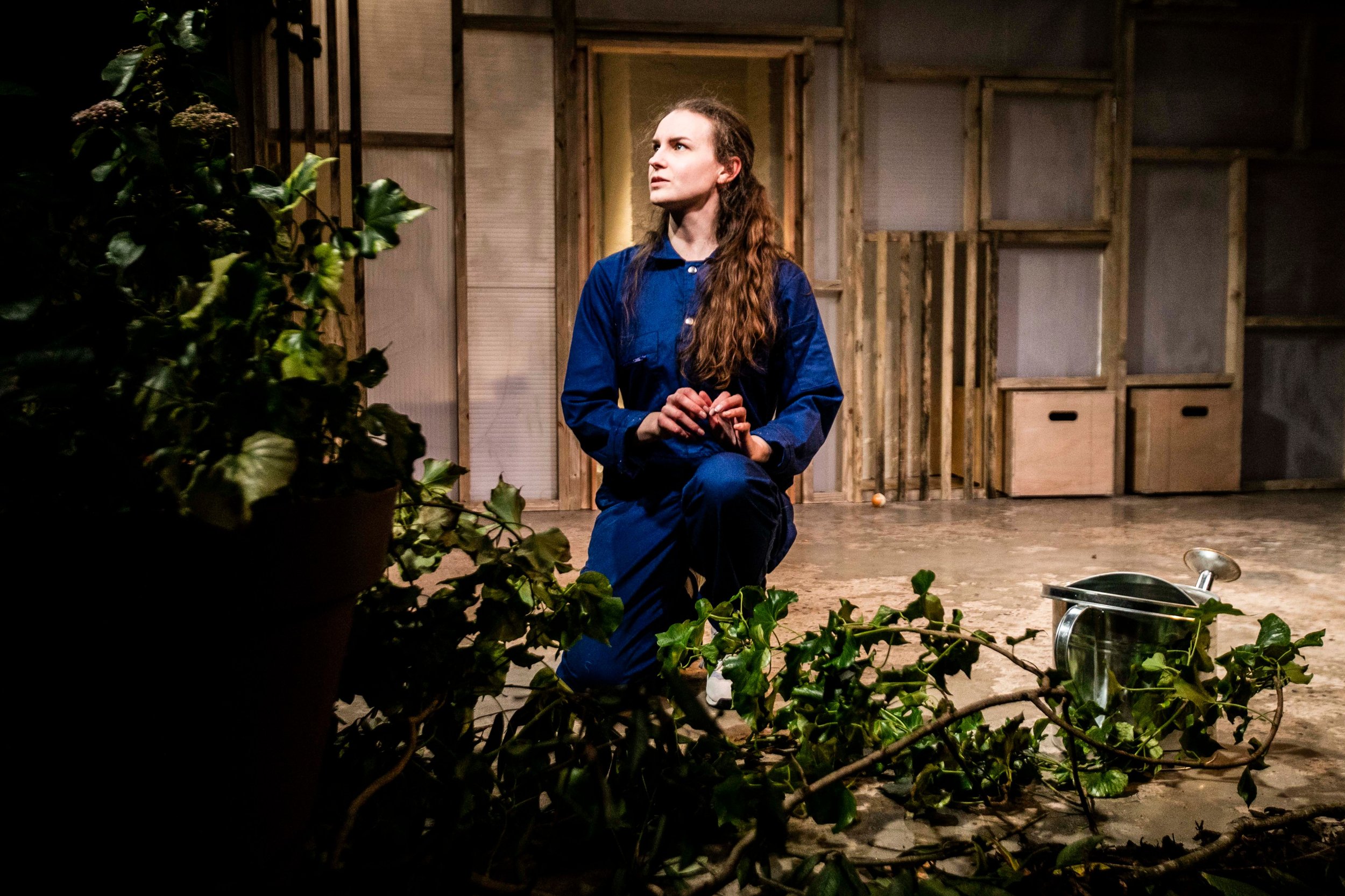Tiny Fragments of Beautiful Light, UK Tour Review (2024)
Photo by Victoria Wai
Written by Stacy for Theatre and Tonic
Disclaimer: Gifted tickets in exchange for an honest review
Tiny Fragments of Beautiful Light is one woman's journey that delves into the female experience of autism through heartfelt storytelling and comedy. The narrative follows Elsa, a quirky and kind individual who has always felt out of place. Her journey of self-discovery takes a turn when she meets Carmen, who seems to hold the key to unlocking Elsa's authentic self. The play celebrates the joy and freedom that comes from embracing one's true identity.
The production's success is a reflection of the talent and dedication of its creative team, who have crafted an immersive and emotionally resonant experience. Writer Allison Davies brings authenticity to the script, drawing from personal experience, while director Karen Traynor ensures a delicate balance of humour and poignancy. Verity Quinn’s thoughtful set design, coupled with Simon Cole’s striking projection and lighting, enhances the play’s sensory elements, making Elsa’s world feel vivid and intimate. Roma Yagnik’s evocative sound design further deepens the atmosphere, while producer Chloe Stott in partnership with Alphabetti Theatre provides the support needed to bring this important story to life, ensuring the production flows seamlessly and every moment lands with impact.
At the heart of the story is Elsa—bright, witty, and kind, yet always feeling out of sync with the world around her. School was a struggle, relationships a puzzle, and life often an exhausting performance, until Carmen comes along, someone who truly understands her. With Carmen’s help, Elsa begins to unravel the mystery of herself, confronting the octopus-like tangle of thoughts that has always occupied her mind. This touching and humorous drama celebrates the liberation that comes with embracing who we really are, rather than who society expects us to be.
The skilled three-person cast infuses the story with depth and authenticity. The lead role of Elsa is portrayed by Hannah Genesius, whose performance is effortlessly endearing, yet heartbreaking at times, effectively capturing Elsa's unique behaviours, emotions, and journey toward self-empowerment. Supporting roles are adeptly handled by Zoe Lambert and Yemisi Oyinloye. Lambert delivers a moving portrayal of Elsa's mother, depicting a parent striving to guide her daughter through life's challenges. Oyinloye embodies Carmen, a character who accepts Elsa unconditionally, aiding her in understanding herself. Both actors seamlessly transition between multiple roles, infusing the production with humour and depth. The cast's seamless chemistry and nuanced performances vividly bring to life the play's themes of self-discovery and acceptance, leaving a lasting impact on audiences.
Designed with the access needs of neurodiverse audiences in mind, the show offers attendees the option to use headphones to control their auditory experience, ensuring comfort during sensory-rich moments. Additionally, the sound will play at a relaxed level in the space for those who prefer not to use headphones. A route map of the show is included, highlighting particular moments that might be triggering, further enhancing accessibility.
Tiny Fragments of Beautiful Light is a vibrant journey of self-discovery, where laughter and truth light the way to acceptance. The show is currently on a highly anticipated UK tour, bringing its powerful exploration of self-discovery and neurodiversity to audiences across the country. Following its successful debut at Alphabetti in 2023, the show is making its way to cities including Sheffield, Darlington, Newcastle, York and Birmingham, offering a unique and heartfelt experience for theatergoers. Don’t miss the chance to see this immersive production as it continues to captivate audiences with its humour, authenticity, and emotional depth.
On a UK Tour until 6 March 2025
★ ★ ★ ★













